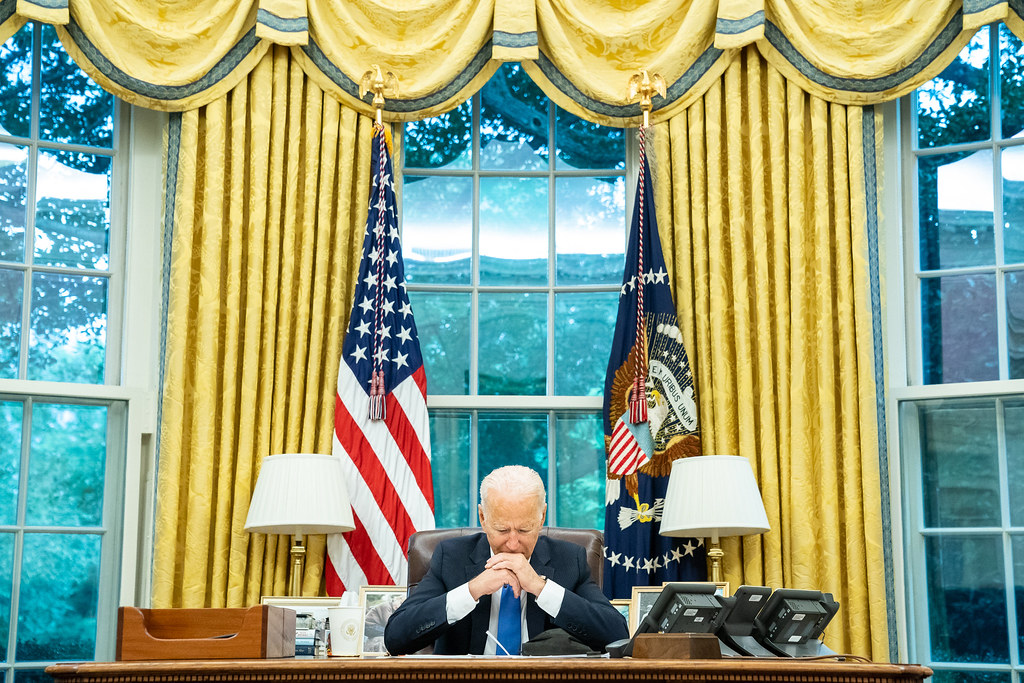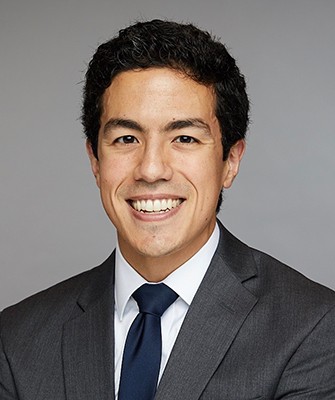What Role Should Criminal Justice Play in Foreign Relations?
The executive branch must balance foreign affairs imperatives against overcriminalization and overt Justice Department politicization.

Published by The Lawfare Institute
in Cooperation With

What is the function of criminal justice in foreign relations? Consider the federal criminal case against Venezuelan President Nicolás Maduro. In March 2020, the U.S. Department of Justice publicly unveiled federal international drug trafficking charges against Maduro, just a month after President Trump had met with Juan Guaidó, the head of the Venezuelan National Assembly. The case played an ambiguous role in broader U.S.-Venezuela foreign policy. Some commentators believed that indictments were an integral part of the Trump administration’s “maximum pressure” campaign to cabin Maduro, a campaign that included sanctions and political recognition of Guaidó as Venezuelan president. At the same time, the criminal investigation clearly began during the Obama administration and thus potentially represented the natural culmination of years of prosecutorial efforts.
How much control did the White House have over the case? How much should it have had? And how normatively desirable in U.S. foreign relations are such foreign affairs prosecutions—cross-border criminal cases that involve extraterritorial statutory authority, institutional capacity and multilateral cooperation—compared to, say, diplomacy or sanctions against the Venezuelan regime?
In a new article, “The Criminalization of Foreign Relations,” I take up such questions, arguing that the United States best harnesses extraterritorial law enforcement policy when engaging criminal justice’s distinctiveness and expressivism. Regarding distinctiveness, compare criminal prosecutions against the six other major six foreign policy modalities: diplomacy, bilateral and multilateral agreements, trade, economic sanctions, military force, and the use of foreign aid. What distinguishes criminal justice is its retrospective judgment, rooted in individual criminal responsibility, involving a high degree of process and deprivation of liberty. Compare this channel of U.S. power to, say, a bilateral treaty—which prospectively enumerates the substance and procedure of a channel of foreign relations—or the use of military force—which is less process driven than criminal justice and very often targets more than a single individual. And criminal justice also has a high expressive potential for American values, for good and for bad: Consider the arguments, for example, the Obama administration made when attempting to try Khalid Sheikh Mohammed in the Southern District of New York as opposed to in Guantanamo Bay military commissions. Part of the argument for trying Mohammed in federal court was that it would “show the world that this country stands firmly behind its legal system and the Constitution.”
If the U.S. government is able to appropriately harness criminal justice’s comparative advantage, such cases may benefit U.S. foreign relations. Consider the case of Joaquín “El Chapo” Guzmán Loera, the infamous former head of the Sinaloa drug cartel in Mexico. After evading Mexican detention twice, Chapo was extradited to the United States by the Mexican government under the bilateral U.S.-Mexico extradition treaty. This constituted a bilateral foreign relations win-win for both sides: Mexico succeeded in removing Chapo from its jurisdiction, while the United States could and did ultimately prosecute, convict and incarcerate him in a maximum-security federal prison.
But criminal justice in foreign relations gives rise to fears of a “global arrest game,” wherein countries engage in retaliatory arrests and/or extrajudicial killings. Consider, for example, the recent trilateral conflict that emerged among the United States, China and Canada regarding the potential extradition from Canada to the United States of Huawei CFO Meng Wanzhou on federal charges of violating export controls and U.S. sanctions related to Iran and other countries. In the midst of 2018 U.S. tariff negotiations with China, Canadian authorities arrested Meng in Vancouver at the request of the U.S. Justice Department. Shortly after her arrest, China arrested and tried Canadians Michael Kovrig and Michael Spavor, in what was widely seen as a retaliatory move; Meng then spent many years challenging the U.S. extradition request in Canadian courts. Ultimately, the Biden administration resolved the trilateral impasse: Meng agreed to a deferred prosecution agreement with the U.S. Attorney’s Office for the Eastern District of New York and safely returned to China, while China released Kovrig and Spavor to Canada; upon arrival, they were personally greeted by Canadian Prime Minister Justin Trudeau.
The Meng case exemplifies the enduring concern that the same forces animating domestic overcriminalization may similarly push foreign affairs prosecutions past their most desirable distinctive and expressive function. In much the same way that domestic criminal law scholars argue that criminal justice has been used as a crude and over-expansive substitute for health or poverty policy, for example, over-expansive criminal justice may supplant more sensible forms of foreign policy.
The foreign affairs overcriminalization specter falls along three lines: prosecutorial, legislative and presidential. The prosecutorial and legislative story is roughly analogous to domestic criminal law; potentially overzealous prosecutors enjoy unfettered discretion, while emboldened legislators have political incentive to criminalize. What distinguishes criminal justice in foreign relations is the additional presidential dimension: Under the banner of foreign affairs authority, the president may install pliant Justice Department leadership and even personally direct criminal cases. For example, in the wake of Meng’s aforementioned arrest, President Trump declared that he might intervene in the case to gain leverage against the Chinese in trade negotiations. While Trump’s personal involvement in the case was ultimately unclear, the posture was largely consistent with his broader posture toward and interference in other Justice Department decisions, as exemplified by the controversy regarding the Roger Stone sentencing.
What is the best path forward for U.S. extraterritorial law enforcement policy? Prescriptions must balance foreign affairs imperatives against overcriminalization and overt Justice Department politicization. On the executive side, the Biden administration should engage in presidential distancing and prosecutorial integration. The former means intra-executive policies to ensure that, once the White House appoints political leadership, it does not involve itself in case-by-case prosecutorial decision-making. This would involve White House deference in day-to-day case management but also keeping apprised of law enforcement activity through the Security Council. Meanwhile, prosecutorial integration would entail greater coordination and oversight of foreign affairs prosecutions through officials at the Justice Department headquarters in Washington, D.C. (known as “Main Justice”). Legislatively, scholars and policymakers alike must continue the hard work of determining some principled basis for criminalizing conduct itself. In the same way that policymakers must draw a more considered normative line with drug offenses—from possession to distribution to international drug trafficking—they must also consider the best approach toward criminalization to ensure criminal justice’s distinctive and expressive function in U.S. foreign relations.





